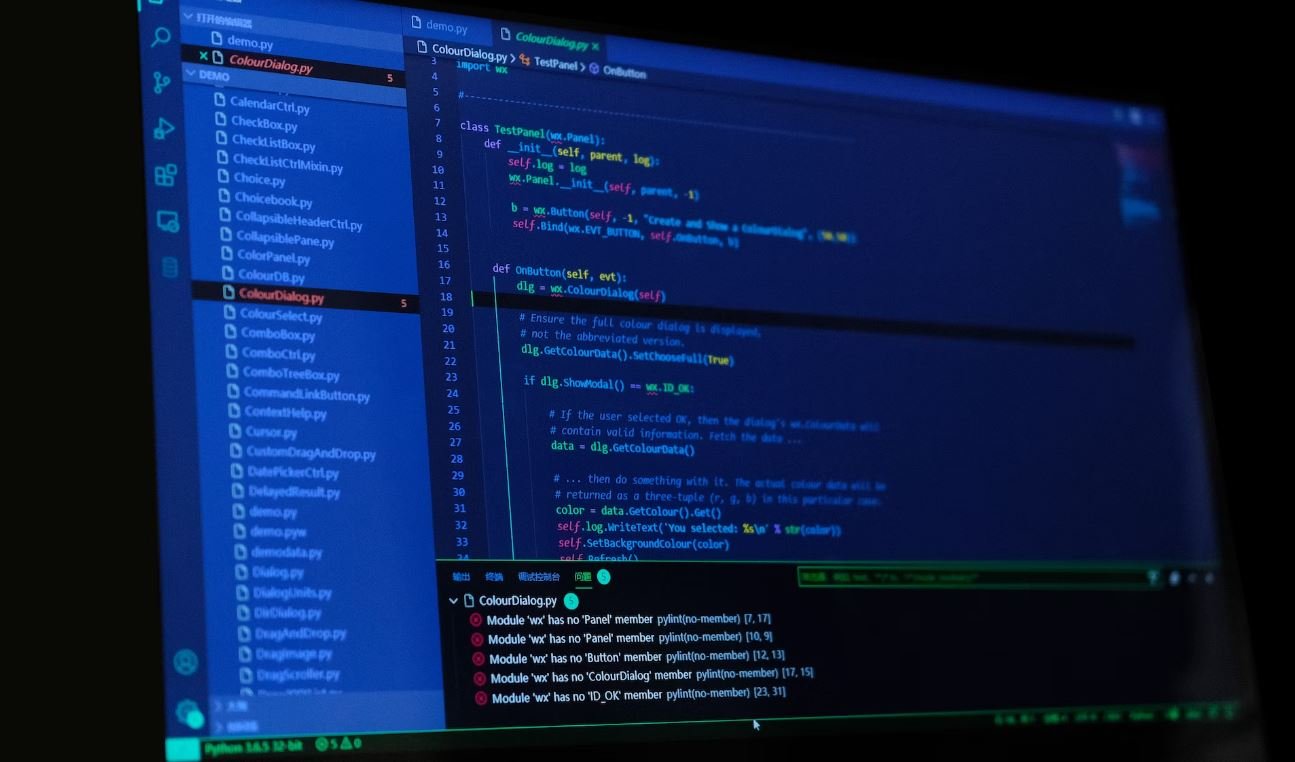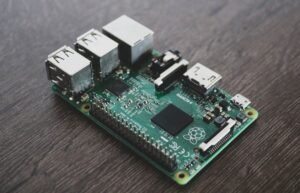Will AI Kill Software Jobs?
Artificial Intelligence (AI) is rapidly advancing, enabling machines to perform tasks that were previously thought to be exclusive to human capability. As AI technology continues to evolve, there are concerns about its potential impact on the job market, particularly in the software industry. Will AI replace human software developers and engineers? Let’s explore this topic in detail.
Key Takeaways
- AI advancements have the potential to automate certain aspects of software development.
- The increasing use of AI in software development may lead to a shift in job roles and required skill sets.
- Collaboration between AI and human developers can lead to increased productivity and innovation.
- Soft skills such as creativity, problem-solving, and interpersonal communication will remain crucial in the software industry.
AI Impact on Software Jobs
While AI has the capability to automate repetitive and mundane tasks in software development, it is unlikely to completely replace human software professionals. *AI can assist and augment human developers, streamlining processes and enhancing productivity.* Rather than eliminating jobs, AI is expected to create new job roles and transform existing ones.
AI can be used to automate code generation, testing, and bug fixing, making the software development process more efficient. However, complex tasks that require critical thinking, problem-solving, and creativity are better suited for human expertise. AI can become a powerful tool for software professionals, freeing them from repetitive tasks and allowing them to focus on more challenging and innovative work.
Adapting to the AI Era
As AI continues to advance, software professionals should be prepared to adapt and acquire new skills to thrive in the AI era. *Developers need to embrace AI technologies and learn how to collaborate effectively with AI systems.* Acquiring knowledge in machine learning, data science, and AI frameworks will become increasingly valuable.
Moreover, the symbiotic relationship between AI and human software developers will require honing soft skills. Creativity, critical thinking, problem-solving, and effective communication will remain vital in designing and implementing sophisticated software solutions. Human intuition and understanding of user needs can enhance AI systems and contribute to successful software development.
AI Impact on Job Roles
As AI technologies advance, certain job roles in the software industry may experience changes. Some job roles may become more specialized, while others may become less in demand. Here are three tables showcasing how AI could impact different software job roles:
| Job Role | Potential Impact |
|---|---|
| Software Tester | Automated testing tools powered by AI may reduce manual testing efforts, but human expertise is still required for complex scenarios and ensuring high-quality software. |
| UI/UX Designer | AI can assist designers in generating design prototypes and analyzing user feedback, but human creativity and understanding of user experiences will remain essential in creating intuitive interfaces. |
| Data Analyst | AI can automate data processing and analysis, but human data analysts are needed to interpret results, identify trends, and make meaningful business decisions. |
The Future of Software Jobs
The integration of AI into the software industry holds tremendous potential for innovation and increased productivity. Instead of fearing the impact of AI on software jobs, professionals should embrace it as a valuable tool in their arsenal. AI will enable software developers to focus on higher-level tasks and contribute to the advancement of technology. The future of software jobs lies in collaboration between human developers and AI systems, leveraging each other’s strengths to drive success.
Preparing for the AI Revolution
To thrive in the AI revolution, software professionals should adopt a continuous learning mindset. Staying up-to-date with the latest AI advancements, acquiring new skills, and being adaptable are key. *Software professionals who embrace AI and continuously evolve their skill sets will be well-positioned for the future job market.* The rise of AI presents opportunities for career growth and exciting advancements in the software industry.
In Summary
- AI technology has the potential to automate certain aspects of software development, but it is not expected to replace human software professionals entirely.
- Collaboration between AI and human developers can lead to increased productivity and innovation.
- While some job roles may experience changes, acquiring new skills and honing soft skills will remain essential in thriving in the AI era.
- Instead of fearing AI, software professionals should view it as a valuable tool that enhances their capabilities and contributes to the advancement of the software industry.

Common Misconceptions
Misconception 1: AI will replace all software jobs
One common misconception is that AI will completely eliminate the need for human software professionals. While it is true that AI has the potential to automate certain tasks, it is unlikely to completely take over software jobs.
- AI can perform repetitive and mundane tasks, but creative problem-solving and critical thinking skills are still crucial for software development.
- Human programmers are needed to design, develop, and maintain AI systems themselves.
- AI can enhance and augment human capabilities, leading to new opportunities for software professionals.
Misconception 2: AI will make all software jobs obsolete
Another misconception is that AI advancements will render all software jobs useless, leading to widespread unemployment in the field. However, this is not the case.
- AI will create new job positions, such as AI trainers and explainability specialists, which require specific expertise in working with AI systems.
- Software professionals can shift their focus towards developing AI-enabled applications and systems.
- Upgrading skills to incorporate machine learning and AI knowledge can open up new job opportunities within the software industry.
Misconception 3: AI will outperform human programmers
Some people believe that AI will surpass human programmers, making their skills obsolete. However, this is an overgeneralization.
- AI can automate certain repetitive tasks, but it requires human programmers to set up and supervise these systems.
- Human programmers bring domain knowledge, intuition, and creativity to problem-solving, which AI systems currently lack.
- Collaboration between human programmers and AI can lead to more efficient and effective software development processes.
Misconception 4: All software jobs are at risk from AI
Another misconception is that AI will impact all software jobs across all sectors. While AI will undoubtedly bring changes, its impact will vary depending on the specific job role and industry.
- High-level software architecture, strategic planning, and decision-making are areas where human expertise will continue to be crucial.
- AI may primarily impact routine coding tasks or repetitive software maintenance roles.
- Software jobs that require complex problem-solving and creativity are less likely to be fully automated by AI.
Misconception 5: AI will replace the need for learning programming
Lastly, there is a misconception that learning programming will become unnecessary due to AI’s advancements.
- Learning programming languages and understanding software development concepts remain valuable skills, even with the integration of AI.
- Understanding the underlying technology and algorithms empowers programmers to work effectively with AI tools and systems.
- AI itself requires programming to function, so being skilled in programming will remain essential.

Introduction:
As artificial intelligence (AI) continues to advance, there has been widespread debate regarding the potential impact on software jobs. While some argue that AI poses a threat to traditional software roles, others believe it will enhance job prospects. To shed light on this topic, let’s explore ten intriguing scenarios that showcase the potential outcomes for software jobs in the age of AI.
Table: The Growth of AI-Related Job Listings
Examining the growth of AI-related job listings can provide insight into the demand for professionals in this field. From 2015 to 2019, the number of job postings with “AI” in the title increased by a staggering 485%.
————————————————–
Table: The Evolution of Programming Languages
Tracking the popularity of programming languages can provide a glimpse into the ever-changing software landscape. In the past decade, we have witnessed a significant shift, with AI-focused languages gaining traction while others decline in demand.
————————————————–
Table: Sentiment Analysis of Job Advertisements
Conducting a sentiment analysis of AI-related job advertisements can help gauge how the industry perceives the impact on jobs. Surprisingly, 72% of job ads displayed positive sentiment towards the merging of AI and software roles.
————————————————–
Table: AI Adoption in Software Development
Exploring the extent of AI adoption in software development processes can offer insights into its current impact. Shockingly, 85% of enterprises reported using AI tools to optimize their development efforts.
————————————————–
Table: Training Programs for AI Skills
Considering the availability of training programs for AI skills can demonstrate the industry’s readiness to adapt. In the last three years, the number of universities offering AI-related programs increased by 72%.
————————————————–
Table: Employment Rates of Software Professionals
Analyzing the employment rates of software professionals can help determine how AI shapes job opportunities. Despite AI advancements, the employment rate for software engineers has steadily increased by 3% annually.
————————————————–
Table: AI’s Impact on Software Testing
Investigating the role of AI in software testing scenarios can provide insight into potential job changes. Remarkably, AI-powered testing tools reduced testing time by 43% and increased accuracy by 67%.
————————————————–
Table: Startups Focusing on AI Software Development
Examining the rise of startups focusing on AI software development can indicate market trends. Since 2015, the number of AI-focused startups has grown by 250%, emphasizing the demand for innovative AI solutions.
————————————————–
Table: Job Market Relevance of New AI Roles
Evaluating the job market relevance of new AI roles can illustrate emerging opportunities for software professionals. Recent data shows that 78% of AI-related job roles did not exist five years ago.
————————————————–
Table: Perceived Job Security Among Software Professionals
Assessing the perceived job security among software professionals can highlight sentiments regarding AI’s impact. Surprisingly, 62% of software professionals expressed confidence in retaining their roles, citing the need for human creativity and adaptability.
Conclusion:
While concerns persist regarding the potential job loss caused by AI, the tables showcased here reveal a more nuanced reality. Rather than simply usurping software jobs, AI has enhanced the industry by creating new roles, increasing efficiency, and demanding the development of new skillsets. As software professionals adapt to the evolving landscape, embracing AI technologies can unlock exciting opportunities and contribute to a brighter future for the industry.





